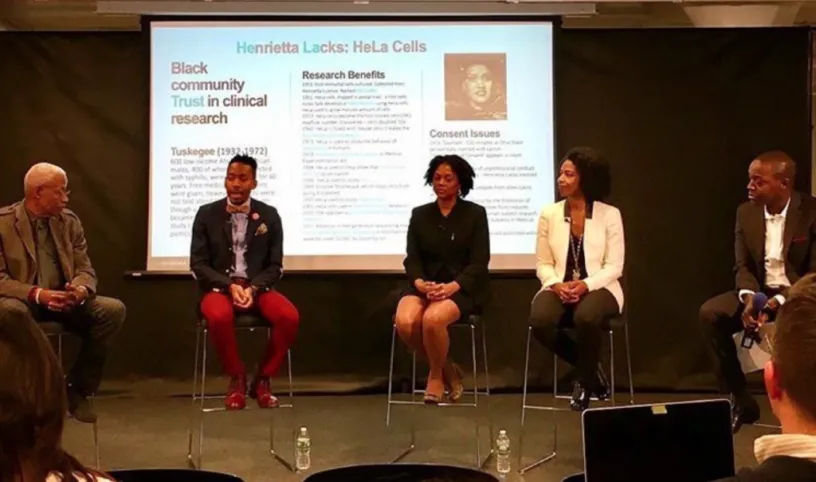Closing the Diversity Gap in Clinical Trials

Last month Medidata celebrated Black History Month, and we took time to come together for our speaker series MediTalk to discuss how our industry can close the diversity gap in clinical trials. This provided an opportunity to engage in meaningful dialogue around the history, impact and opportunities available around improving clinical trial participation in the black community.
Last month, I had the honor of moderating the panel of distinguished and knowledgeable healthcare professionals—Dr. Robert Fullilove, professor of sociomedical sciences at the Columbia University Medical Center, Quardricos Driskell, health policy and federal manager at the National Psoriasis Foundation, Dr. Sophia Small-Warner, director of graduate medical education at New York-Presbyterian’s Brooklyn Methodist Hospital, and Dr. Janna Andrews, assistant professor of radiation medicine at Hofstra Northwell School of Medicine.
The panel took a multifaceted approach to addressing precision medicine, patient literacy, public policy, activism and the future impact of ethnic homogeneity (referred to as “Dabba-Dabba-Dee, Dabba-Dabba-Duh” by Dr. Fullilove), to name a few.
The black community has a history steeped in mistrust of the research community. With examples like the infamous Tuskegee syphilis experiment, “Don’t let them experiment on you,” as asserted by one of the panelists, is at the heart of the disconnect. Similarly, the story of Henrietta Lacks—the unwitting source of the important HeLa cell line—illustrates the lack of recognition for contribution. But these wrongs eventually set the foundation for informed consent. Now we can steer the conversation towards patient-friendly informed consent.
It is clear that our industry partners should address the diversity gap for the most altruistic of reasons. There is a clear scientific case for ensuring representation—generalizability. As technology advances, real-world data (e.g., Mini-Sentinel) will increasingly play a role in the validation of the trials we support. Medidata’s data strategy and solutions can certainly facilitate patient identification and education, to name a few.
More importantly, I am encouraged by the dialogue from our colleagues and leadership alike. As one panelist exerted, we must move forward with “action and passion.” Our mission and capabilities are not simply aligned to power smarter treatments for some patients, but for all patients.
Contact Us
